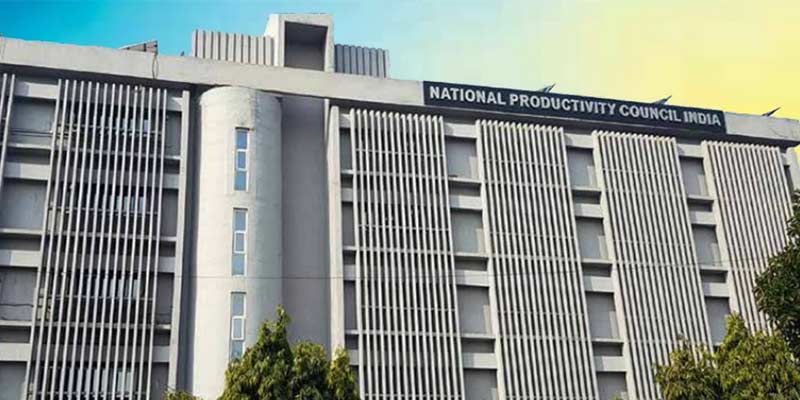- India
- Feb 12
Explainer / What is the purpose of National Productivity Council (NPC)?
The National Productivity Council (NPC) celebrates National Productivity Week every year from February 12-18.
NPC celebrates February 12 as National Productivity Day to commemorate its establishment in 1958 and stimulate and promote productivity and quality consciousness across all sectors in the country.
What is the purpose of National Productivity Council?
• National Productivity Council (NPC) was established in 1958.
• It is an autonomous body under the Department for Promotion of Industry & Internal Trade (DPIIT).
• The mission of NPC is to develop, disseminate and apply knowledge and experience in productivity, to promote consciousness and improvement in productivity.
• It has a tripartite character, wherein government, industry and labour are equally represented.
• The Council is headed by the Union Minister of Commerce and Industry as its president and the governing body is headed by secretary, Department for Promotion of Industry & Internal Trade (DPIIT) as its chairman.
• The director general is the CEO of NPC.
• The head office of NPC is situated in New Delhi. NPC has a countrywide reach with 13 Regional Directorates (RDs), located in state capitals/industrial centres and one training institute — Dr. Ambedkar Institute of Productivity (AIP) — located in Chennai.
• NPC also has a network of over 24 affiliated bodies called Local Productivity Councils (LPCs) in the country to spread the message of productivity and dissemination at grassroots level.
Objectives of NPC:
1) Promote innovation-led productivity in a sustained manner in all spheres of national economy through holistic and inclusive approach by addressing the triple bottom line – economic, environmental and social.
2) Propagate productivity consciousness and culture amongst government, business and society.
3) Demonstrate value addition through generation and application of advanced productivity tools and techniques for multiplier effect.
4) Act as a total solution provider for industry, services and agriculture sectors for augmenting productivity through training, consultancy and research wherever needed through alliances and partnerships.
5) Act as a catalyst in institution building and developing platforms for collaborative networking to strengthen the productivity movement.
6) Act as a think tank by providing productivity related evidence based policy support and advice in while tracking the emerging trends.
7) To be an independent oversight entity for various national programmes, schemes and interventions.
8) Recognise productivity champions through awards, affiliations, certifications, accreditations, etc.
9) Enhance international outreach for sharing the gains of productivity on a mutual basis.
10) To be a repository of productivity and competitiveness data across all sectors at the state and national level.
11) To devise national productivity standards across all sectors and self assessment web based measurement tools for productivity diagnosis.
• NPC represents India in the Tokyo-based Asian Productivity Organisation (APO), of which India is a founder member and implements APO programmes/activities relating to India. NPC undertakes productivity augmentation through domain specific consultancy, training, workshops, seminars and conferences for government, public and private sectors, productivity related research, monitoring & evaluation of various government schemes and projects and information dissemination through collaboration with APO.
Asian Productivity Organisation (APO)
• The APO is an inter-governmental organisation established in 1961 to increase productivity in the Asia-Pacific region through mutual cooperation.
• The APO Secretariat is located in Tokyo, headed by a Secretary-General.
• The APO contributes to the sustainable socioeconomic development of the region through policy advisory services, acting as a think tank, and undertaking smart initiatives in the industry, agriculture, service, and public sectors.
• The APO is shaping the future of the region by assisting member economies in formulating national strategies for enhanced productivity and through a range of institutional capacity-building efforts, including research and centers of excellence in member countries.
• APO membership is open to countries in Asia and the Pacific which are members of the United Nations Economic and Social Commission for Asia and the Pacific (UN ESCAP).
• The current APO membership comprises 21 countries.
Manorama Yearbook app is now available on Google Play Store and iOS App Store

